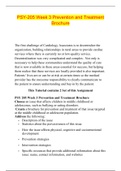2.
MIS-605: Topic 3 DQ 1
Assume you have a position as database administrator in a large corporation. The company has been collecting data about employees, including monitoring their working habits by recording their keystrokes, timing their telephone interactions with clients, and scanning their e-mail for personal correspondence. As database administrator (DBA), you are asked to help establish a record-keeping system to store such data. Does the company have a legal right to perform this kind of monitoring? Explain your professional responsibility in this situation. Discuss provisions within the ACM and IEEE Codes of Ethics that can be used to guide you.
Answer:
A company does have a legal right to monitor their employees when it comes to items owned by the company. But there are instances where a company cannot monitor their employees. One instance would be if they where tracking to use that information for illegal use. Another instance would be if the employee was a member of a union. Companies typically track their employees because they want to make sure that what they are doing is work related. Also, I believe that employees should be told that they will be monitored through the use of company related equipment, and that they should act professionally when it comes to the use of that equipment. In the ACM code of ethics, it mentions that the company should hold high standards when it comes to professionalism, conduct, competence, and ethical practice. Having such standards shows the employees that there are certain expectations within the company. If those expectations are not followed, then repercussions will follow.
The code affirms an obligation of computing professionals to use their skills for the benefit of society. (2020). AMC. Retrieved from https://www.acm.org/code-of-ethics
Workplace privacy and employee monitoring. (2019, March 25). Privacy Rights Clearinghouse. Retrieved from https://privacyrights.org/consumer-guides/workplace-privacy-and-employee-monitoring




